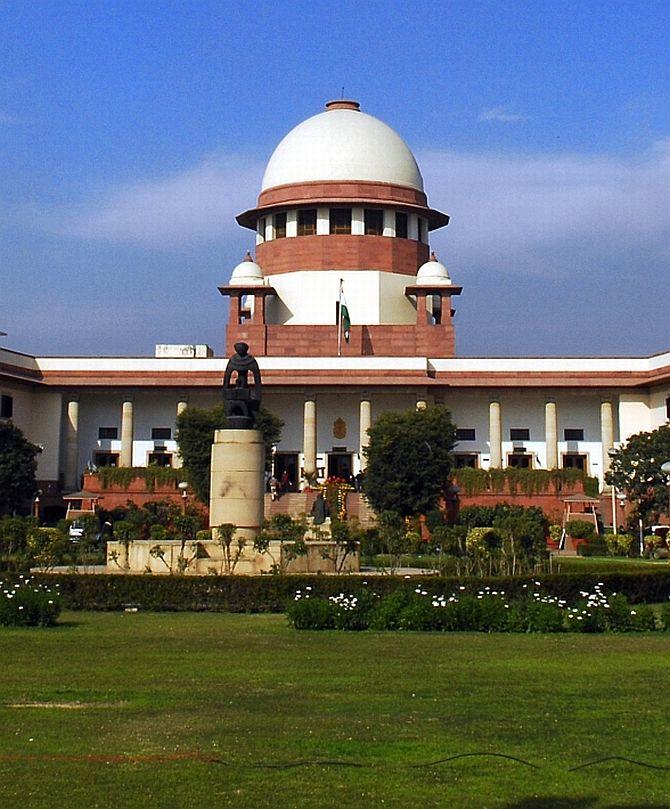 The Supreme Court will hear on Monday a batch of petitions challenging the 121st constitutional amendment by which collegium system for appointment of judges in higher judiciary was scrapped and a new mechanism under National Judicial Appointment Commission was proposed to be put in place.
The Supreme Court will hear on Monday a batch of petitions challenging the 121st constitutional amendment by which collegium system for appointment of judges in higher judiciary was scrapped and a new mechanism under National Judicial Appointment Commission was proposed to be put in place.
When advocates appearing for petitioners, challenging the NJAC measure, pleaded that urgent hearing should be given to them, a bench headed by Chief Justice R M Lodha said that the matter is coming for hearing on Monday.
Four PILs have been filed in the Supreme Court for declaring the NJAC move as unconstitutional, days after Parliament passed two bills to scrap the collegium system for appointments in higher judiciary and to provide a new mechanism in its place.
The PILs have been filed by former Additional Solicitor General Bishwajit Bhattacharya, advocates R K Kapoor and Manohar Lal Sharma and Supreme Court Advocates on Record Association.
The lawyers submitted that the 121st Constitutional Amendment Bill and the NJAC Bill, 2014, passed by Parliament were unconstitutional as they violate the basic structure of the Constitution.
"The Constitution itself recognises a clear demarcation separating the judiciary from the executive under Article 50 of the Constitution which is the underlying strength for a sound judicial system. It would be relevant to point out here that Article 50 of the Directive Principles of the State Policy under the Constitution is not only applicable to the lower judiciary but is also applicable to the higher judiciary as the doctrine of separation of power and the independence of the judiciary were basic immutable features of the Constitution," Kapoor submitted.
Bhattacharya has contended that the Constitution empowers the Chief Justice of India to take a decision in every appointment of Supreme Court and high court judges and in every transfer of judges from one high court to another.
"This power is now being shifted to the NJAC and the very possibility of the CJI along with two senior-most judges of the SC being vetoed by the executive would be destructive of the independence of the judiciary and the doctrine of separation of power, both basic features of India’s Constitution," he said.
Rajya Sabha had on August 14 approved with overwhelming majority the 121st Constitution Amendment Bill along with the NJAC bill, a day after Lok Sabha gave its nod to the measures.
Lok Sabha had passed the bill with a crucial amendment suggested by opposition Congress that was accepted by the government.










 © 2025
© 2025